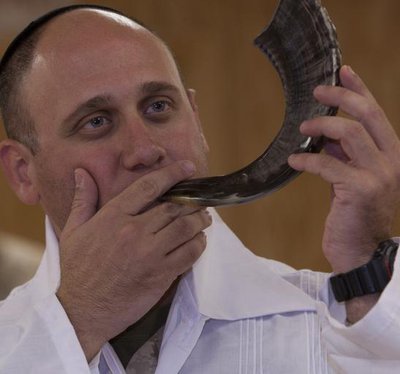Thoughts for the Day
Friday, 30th July 2021: The Day of Atonement
Leviticus 23 Yom Kippur Day of Atonement Sin Old Testament
Reading : Verses from Leviticus, Chapter 23

The Lord spoke to Moses, saying: Now the tenth day of this seventh month is the day of atonement; it shall be a holy convocation for you: you shall deny yourselves and present the Lord's offering by fire; and you shall do no work during that entire day; for it is a day of atonement, to make atonement on your behalf before the Lord your God. For anyone who does not practise self-denial during that entire day shall be cut off from the people..... You shall do no work: it is a statute for ever throughout your generations in all your settlements. It shall be to you a sabbath of complete rest.... on the ninth day of the month at evening, from evening to evening you shall keep your sabbath.
(Church in Wales Lectionary, New Revised Standard Version)
Thoughts
The Day of Atonement, or Yom Kippur, is the most holy of days for the Jewish people, and there are elaborate rituals to be observed as described in the Book of Leviticus. In the ten days before this the people make preparations for this day. Then the High Priest makes a sacrifice for the sins of the people in order to restore the people to a right relationship with God. After that a living parable is acted out - a goat is released into the wilderness, never to return, as a symbol that the sin of the people is taken away. From this we get the idea of a 'scapegoat', one who is sacrificed for everyone else.
As Christians we can see the connection to the death of Jesus, since we believe that Jesus offered himself to death to pay for our sin, but unlike the High Priest's action which only freed the people from sin for one year, Jesus promises to make atonement for our sin for ever.
We can learn much from the Day of Atonement, in the way that the people approach the day with fasting, study, and confession, and even from the blowing of the shofar (the ram's horn) to celebrate the end of the fast. All of these are a serious look at one's life, in order to be made right with God. Can we truly say that our two minute confession at the Eucharist is adequate? Should we go back to a time when we were asked to read the lessons before attending worship, and think about where we had fallen short of God's expectation? Alright, let's be realistic, can we at least think of some sins we have committed before attending worship, so that we have something to admit to God when the priest invites us to confess?
Prayer
Lord God,
help us to learn to look seriously at our ourselves,
to be honest about those times
we fall short of Your expectation.
Let us name those sins we commit each day:
our pride, our selfishness,
our inability to really love others,
and our desire to ignore what You want.
Amen.
You might like to look at this "bite-size" explanation of Yom Kippur, for Key-Stage 2 children:
You could also look up the details of the Yom Kippur from Leviticus: